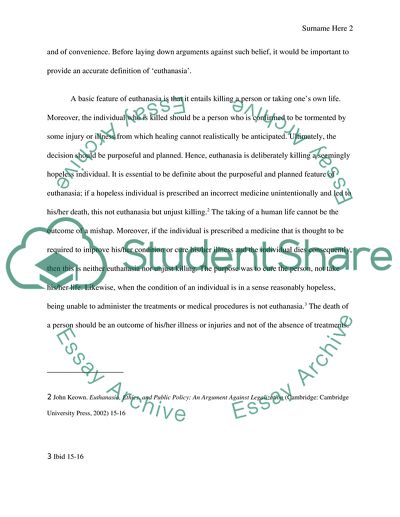Cite this document
(“Euthanasia is Inherently Wrong Essay Example | Topics and Well Written Essays - 1500 words”, n.d.)
Retrieved de https://studentshare.org/creative-writing/1596875-euthanasia-is-inherently-wrong
Retrieved de https://studentshare.org/creative-writing/1596875-euthanasia-is-inherently-wrong
(Euthanasia Is Inherently Wrong Essay Example | Topics and Well Written Essays - 1500 Words)
https://studentshare.org/creative-writing/1596875-euthanasia-is-inherently-wrong.
https://studentshare.org/creative-writing/1596875-euthanasia-is-inherently-wrong.
“Euthanasia Is Inherently Wrong Essay Example | Topics and Well Written Essays - 1500 Words”, n.d. https://studentshare.org/creative-writing/1596875-euthanasia-is-inherently-wrong.


